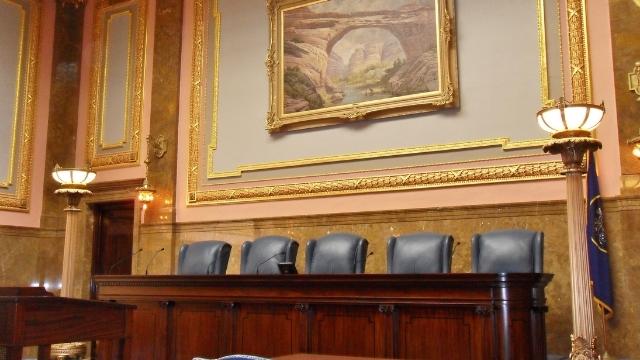Scientology is a unique example of a religion where confidentiality is part of the essence of its central religious practices.
by Massimo Introvigne
Article 4 of 5. Read article 1, article 2, and article 3.


I continue with this article my review of Religious Confession and Evidential Privilege in the 21st Century (Cleveland, Queensland: Shepherd Street Press, 2021), edited by Mark Hill and A. Keith Thompson. The book is about the confessional privilege, and discusses how the statutes allowing ministers not to reveal to anybody, including the police or the judges, what has been told to them by parishioners in a confidential clergy-penitent relationship, came under assault by those who proposed to abolish them after the scandal of the pedophile priests erupted in the Catholic Church.
The final chapter of the book is by Eric Lieberman, a distinguished New York attorney. It is of special importance as the only chapter going beyond the case of Christian confessions—although most other authors also comment that the problem in a contemporary scenario of religious pluralism necessarily involves all religions.
Lieberman starts from the First Amendment to the United States Constitution, which both prohibits the establishment of a religion by the government, thus also prohibiting that confession as practiced by one church be more protected than similar practices in other religions, and protects the free exercise of religion from governmental interference. He comments that cases from other countries would have a limited impact in the United States, since “the Free Exercise Clause was an original American concept and invention unlike anything previously known” (282).


The First Amendment is also, Lieberman believes, one of the reasons new religions have been allowed to be born and flourish in the United States more than elsewhere. One such new religion is the Church of Scientology, the subject matter of Lieberman’s chapter. He notes that Scientology is not a mere footnote in the book, since it offers “a unique example of a modern expanding religion whose central practices rely upon highly confidential communications between parishioners and clergy. The structure of the confidential communications in Scientology carries out the principles and beliefs of the religion and its community. Indeed, the Scientology Church’s ability to practice its beliefs relies on the confidentiality of the communications between its parishioners and ministers” (282–83).
The core problem, which Scientology has of course in common with other religions, is that its confidential practices “do not fit traditional Christian patterns” (283), which admittedly the judges who created the American case law on the confessional privilege had in mind. The central practice of Scientology is “auditing,” where a trained minister (auditor) offers spiritual counseling to parishioners, aimed at helping them to overcome their problems and increase their abilities. The parishioners are supposed to tell the auditor about their “withholds,” i.e., acts against themselves or others likely to damage their spiritual progress. This is a confessional practice that has hundreds of different specialized versions—for example, Scientology Marriage Counseling for marital problems—, and can only function if parishioners are “secure in their understanding that their communications will remain absolutely secure and will not be disclosed” (286). In fact, a parishioner may “disclose information of a highly personal and confidential nature. In other words, a parishioner may tell his [sic] minister secrets known to no other. Such information could reveal immoral or unethical acts, or fall within the full gambit of unwanted emotions, events, considerations and histories” (288). Hence, confidentiality is essential.
In this respect, the practice has analogies with Christian confession. However, unlike the latter, Scientology auditing requires that the auditor takes notes, which are kept in a special folder called “Preclear Folder” (indicating that the parishioner had to move to the more advanced spiritual state of “clear”) and maintained under lock and key under high security conditions. Since Scientology believes in reincarnation, when parishioners die their folders are stored for their “return in the next lifetime” (290). Also, auditors are supervised by Case Supervisors, who have no contacts with the audited parishioners but have access to their Preclear Folders where they place their written instructions intended for the auditors. Part of the ministerial team is also an Ethics Officer, who guides the parishioner to resolve ethical issues when needed.


Do these differences invalidate the application to Scientology auditing of the principles American courts have recognized as protecting Christian confession? To answer this question, according to Lieberman, two premises are needed. First, while most cases about the confessional privilege have been decided according to common law, the landmark 1959 decision Mullen by the District of Columbia Circuit “and its consequences inevitably mandate recognition of the privilege as constitutionally based” (294). To reason otherwise would imply that the privilege applies “only to certain denominations or practices and not to others” (295).
Second, Lieberman argues that the elements making Scientology’s confessional practices different from Catholic confession are not unique. It is not true, in particular, that only in Scientology “confession” is not a one-on-one practice but involves more than two persons. As early as 1917, in Reutkemeier v. Nolte, the Supreme Court of Iowa extended the confessional privilege to a “confession of sin” made by a Presbyterian woman to her pastor and three congregational elders. In 1994, the Supreme Court of Utah concluded that communications made to obtain ecclesiastical guidance to a Latter-day Saint bishop did not lose their privileged status because the bishop later transmitted them for review to a Stake (the equivalent of a diocese) High Council Court. Other decisions reached the same conclusion, with a federal appeals court stating in 1990 that excluding from privilege confidential communications that reached more than one minister of the same religious body would risk “restricting the privilege to Roman Catholic penitential communications” only, which would be constitutionally impermissible (301).


It is also the case, Lieberman notes, that a solid Supreme Court case law mandates that the state cannot interfere in how religious bodies decide to self-organize themselves. The conclusion is that it is “inconceivable under these cases for a United States court to order a minister to disclose a privileged communication contrary to the rules and governance of his [sic] church, even in the unlikely event that the parishioner attempts to waive the privilege” (305).
The case of a penitent, a murder suspect, who consented to the use in court of a confession made to a Catholic priest in jail and recorded without the priest’s knowledge, was decided by the U.S. Court of Appeal for the Ninth Circuit in 1997 in Mockaitis v. Harcleroad. The court concluded that, the penitent’s consent notwithstanding, the confession cannot be used as evidence, and any such use would violate the religious liberty of the priest and the Catholic Church. It is true that the case was decided under the Religious Freedom Restoration Act (RFRA), which was later declared unconstitutional as applied to the states, but Lieberman believes that the general principles affirmed by Mockaitis derive from the Constitution rather than from the RFRA, and their interpretation remains valid.
If confessional communications to ministers are protected without regard to the religion that received them, nor to how many ministers accessed them, or to whether they were written down and preserved or not, and on these matters religions are free to self-organize themselves as they deem fit, then the conclusion about Scientology is inescapable, Lieberman argues. “Scientology’s central practice of auditing meets all the necessary requirements for full protection in every state and in the federal courts under the constitutional standards” (307).
Auditing “ultimately employs more than one minister,” but “that characteristic is necessitated by the beliefs and structure of the religion, as in numerous denominations other than Scientology.” Just like a Catholic priest, “a Scientology auditor is prohibited as a matter of faith and doctrine from revealing what is said or written in an auditing session even if a congregant attempts to ‘waive’ his [sic] privilege contrary to his religious covenant never to do so.” Auditors should be protected just as Catholic priests are. “At the end of the day, all religions and faiths must be treated equally with recognition of the various forms and practices with which Americans practice their faith” (307).








